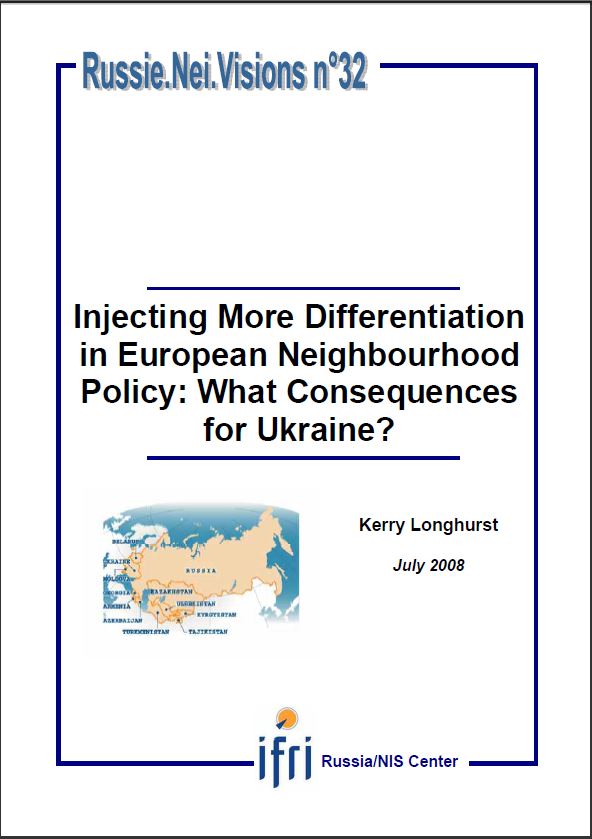Injecting More Differentiation in European Neighbourhood Policy: What Consequences for Ukraine?

The European Neighbourhood Policy (ENP) is at a crossroads. Over the course of France's EU Presidency the Union of the Mediterranean will be launched and the Polish-Swedish proposal for an "Eastern Partnership" will be elaborated upon. These initiatives challenge the ENP and cast doubt over the EU's ability to keep the southern and eastern neighbourhoods together under one roof. This paper argues that whilst the EU should maintain its "balanced approach" to its neighbourhood, it should at the same time develop more differentiation within ENP, which will strengthen the policy. To this end, the EU should recognise, more sincerely and practically, the European aspirations of the eastern neighbours by stating explicitly that ENP is not an end in itself, but rather a route to possible membership.
Download the full analysis
This page contains only a summary of our work. If you would like to have access to all the information from our research on the subject, you can download the full version in PDF format.
Injecting More Differentiation in European Neighbourhood Policy: What Consequences for Ukraine?
Related centers and programs
Discover our other research centers and programsFind out more
Discover all our analysesThe Caspian Sea as an Emerging Energy Hub : Potentials and Limitations
This report analyzes the prospects of the Caspian Sea region — and its key actors except for Russia and Iran — becoming an important energy hub serving the needs of the European Union (EU).
The European Union's Strategic Test in Georgia
The political crisis brewing in Georgia is of an existential nature for the country. What is at stake is Georgia's future as a democratic and sovereign European nation (EU).
Commanders of Putin's Long War: Purged, Reshuffled and Disgruntled
The trend of reshuffling the Russian top military command in the course of a fast-evolving and far from successful war has progressed unevenly both across the Armed Forces’ structures and in time. The rationale for and timing of the abrupt cadre decisions made by Commander-in-Chief Putin often defy logical explanation, and the rare official clarifications are no more informative than the usual information blackout.
Russian Military Manpower After Two and a Half Years of War in Ukraine
In addition to a military victory in Ukraine, the Russian leadership is planning to build up sizable troop formations for a possible conflict with NATO in the Baltic region and the Kola Peninsula. In particular, current plans aim for the military manpower to grow by about 350,000, reaching a total of 1.5 million soldiers and commanders. In the context of the current conflict in Ukraine, this cannot be accomplished without a new wave of mass mobilization.










